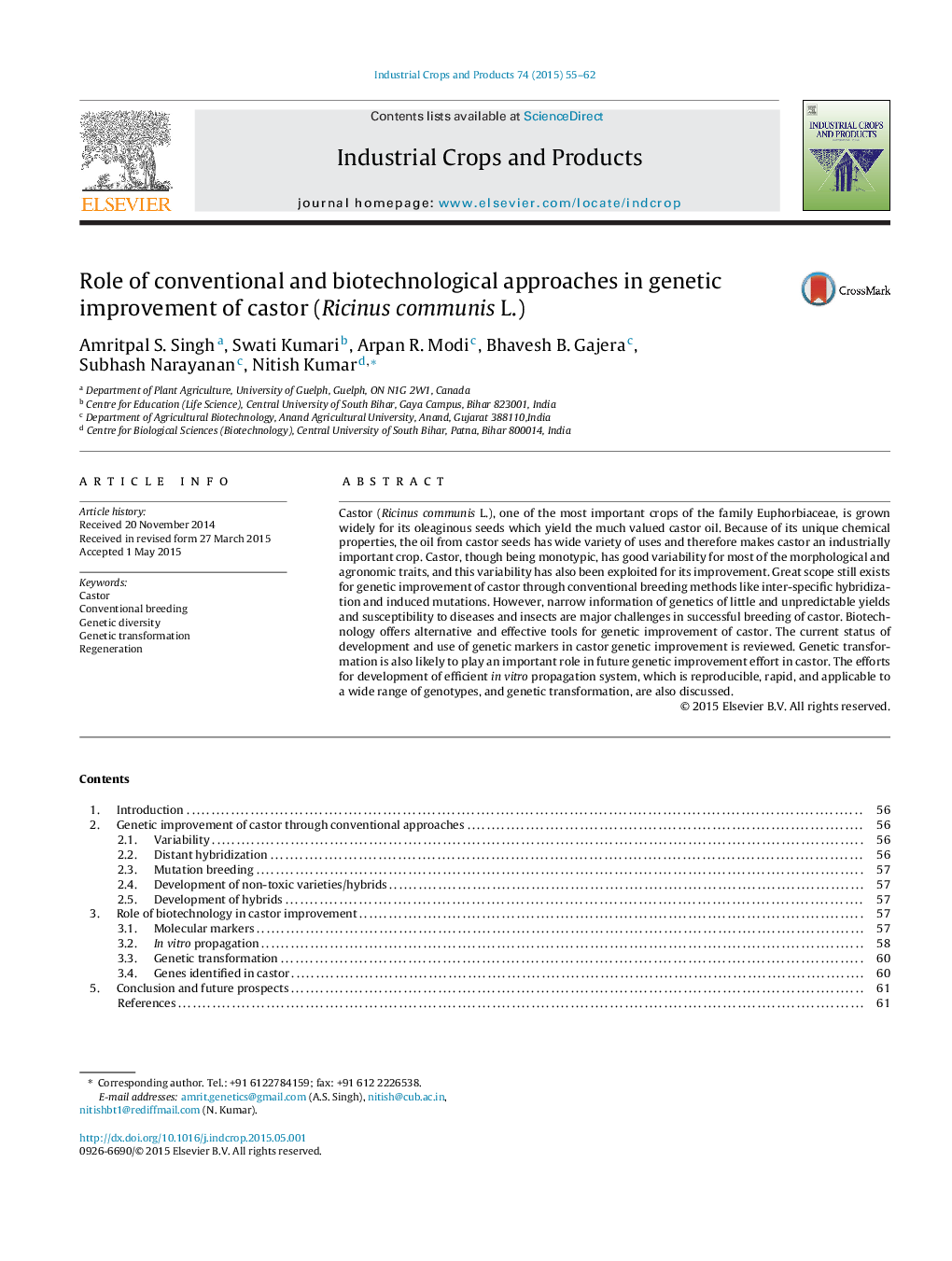| کد مقاله | کد نشریه | سال انتشار | مقاله انگلیسی | نسخه تمام متن |
|---|---|---|---|---|
| 6375824 | 1624835 | 2015 | 8 صفحه PDF | دانلود رایگان |
عنوان انگلیسی مقاله ISI
Role of conventional and biotechnological approaches in genetic improvement of castor (Ricinus communis L.)
دانلود مقاله + سفارش ترجمه
دانلود مقاله ISI انگلیسی
رایگان برای ایرانیان
کلمات کلیدی
موضوعات مرتبط
علوم زیستی و بیوفناوری
علوم کشاورزی و بیولوژیک
علوم زراعت و اصلاح نباتات
پیش نمایش صفحه اول مقاله

چکیده انگلیسی
Castor (Ricinus communis L.), one of the most important crops of the family Euphorbiaceae, is grown widely for its oleaginous seeds which yield the much valued castor oil. Because of its unique chemical properties, the oil from castor seeds has wide variety of uses and therefore makes castor an industrially important crop. Castor, though being monotypic, has good variability for most of the morphological and agronomic traits, and this variability has also been exploited for its improvement. Great scope still exists for genetic improvement of castor through conventional breeding methods like inter-specific hybridization and induced mutations. However, narrow information of genetics of little and unpredictable yields and susceptibility to diseases and insects are major challenges in successful breeding of castor. Biotechnology offers alternative and effective tools for genetic improvement of castor. The current status of development and use of genetic markers in castor genetic improvement is reviewed. Genetic transformation is also likely to play an important role in future genetic improvement effort in castor. The efforts for development of efficient in vitro propagation system, which is reproducible, rapid, and applicable to a wide range of genotypes, and genetic transformation, are also discussed.
ناشر
Database: Elsevier - ScienceDirect (ساینس دایرکت)
Journal: Industrial Crops and Products - Volume 74, 15 November 2015, Pages 55-62
Journal: Industrial Crops and Products - Volume 74, 15 November 2015, Pages 55-62
نویسندگان
Amritpal S. Singh, Swati Kumari, Arpan R. Modi, Bhavesh B. Gajera, Subhash Narayanan, Nitish Kumar,